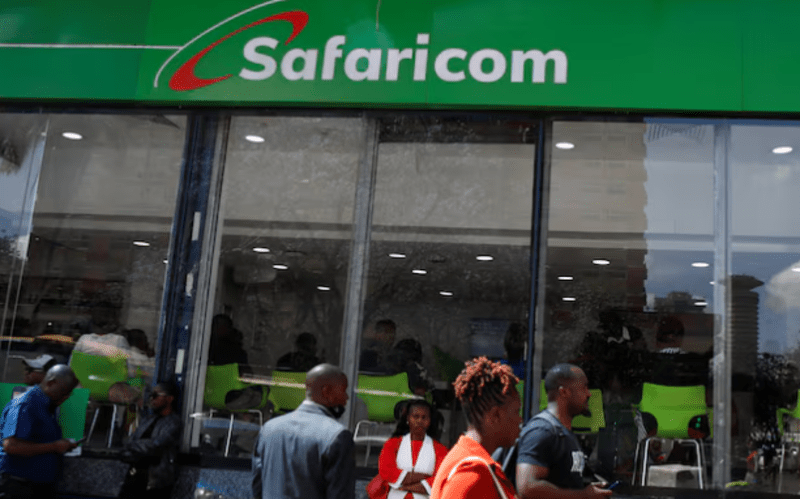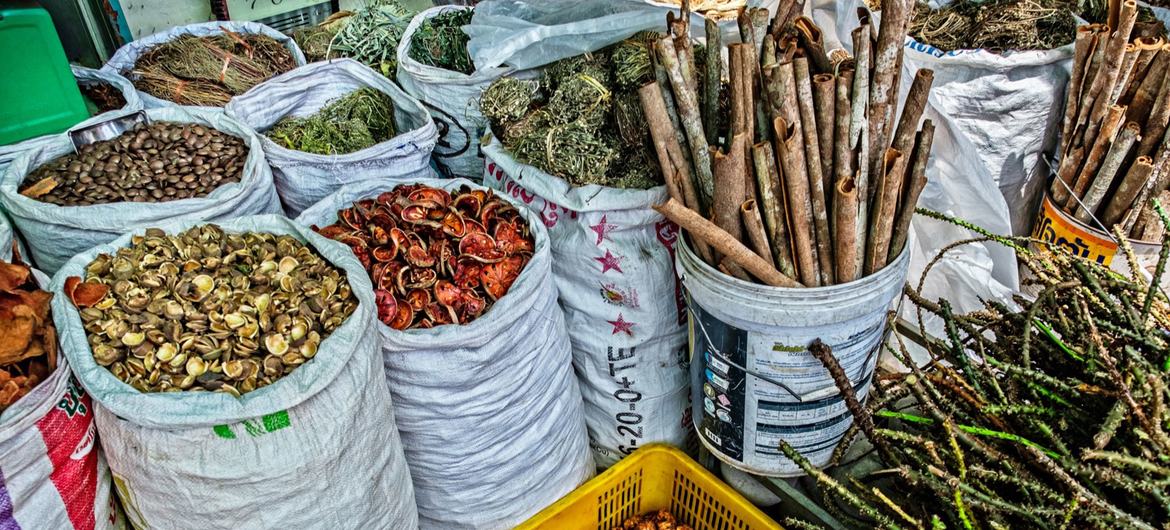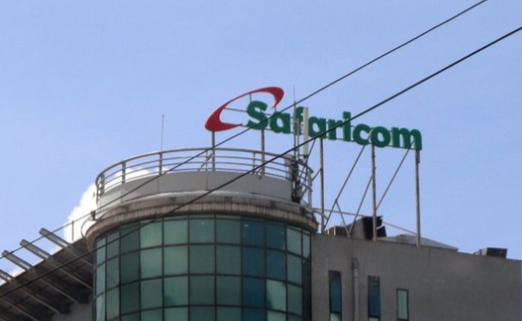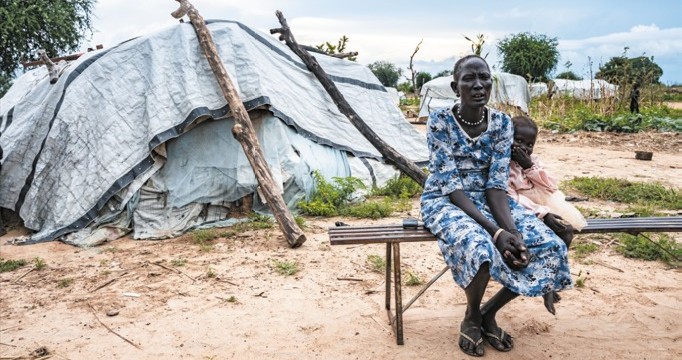Meet Ali Osman, chief injera supplier in Eastleigh's Airbase ward
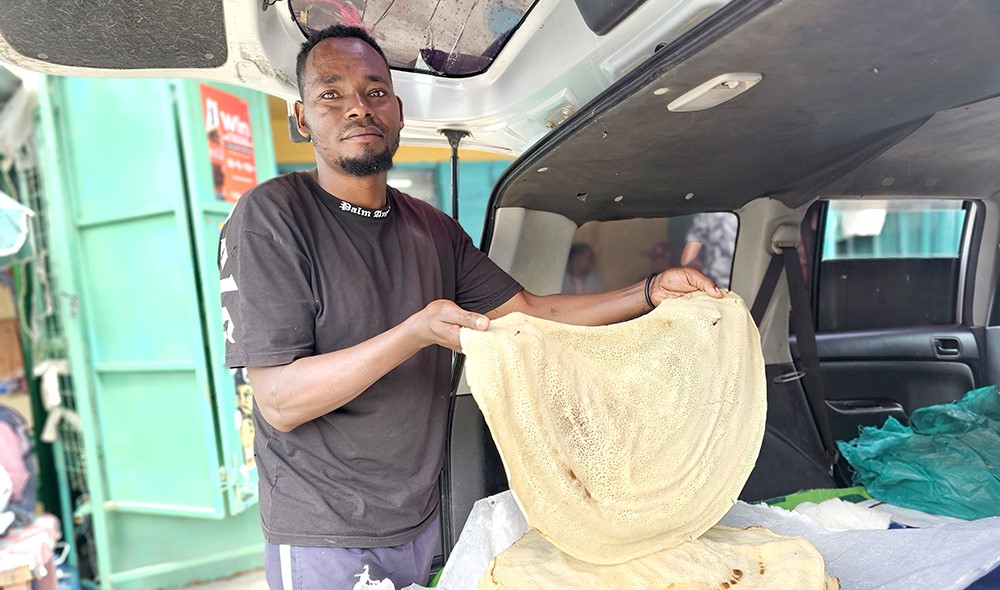
Ali begins his delivery route at 9am, packing the ready-made injera into his Toyota Probox.
Ali Osman has consistently supplied injera, Ethiopian bread, to restaurants and shops in Nairobi's Eastleigh Airbase Ward for the past six years.
His daily routine starts at 11 pm when he begins making injera in his small house in Kariobangi. By 8 am, the cooking is complete, and he starts distributing the injera to his customers.
More To Read
- FAO index shows decline in global food prices, except cereals
- World Bank warns political interference weakening Kenya’s state-owned enterprises
- CS Kagwe announces policy overhaul for sugar, tea and miraa to protect farmers’ earnings
- Factory farming in Africa: Development banks see it as a good idea, but it’s bad for the climate
- AU calls for rapid tech adoption in farming to shield continent from food crises
- KNBS data shows uneven food price shifts as inflation dips slightly
Ali, 33, focuses solely on the Airbase area due to the great demand for injera, particularly among the Oromo population.
"There are a lot of Oromo communities at Airbase and the demand for injera is so high as more people eat it," he explains.
Ali begins his delivery route at 9am, packing the ready-made injera into his Toyota Probox. Initially, he made deliveries on foot, but the car has significantly improved his efficiency.
He mentions that most restaurants in the area prefer to buy injera from him instead of making it themselves.
"Most restaurants do not make injeras. I supply them daily because it is cheaper for them to buy mine than make," he says.
When he arrives at the Airbase area, Ali parks his car at a central point and delivers the injera to shops and restaurants. Carrying the injera in large plastic bags on his back or head, he spends about three to four hours completing his deliveries. By 2pm he returns home to rest and prepare for the next day's work.
He produces between 300 and 400 injeras per day, which he sells to various stores and restaurants before returning home.
This business lets him support his family, as each injera sells for Sh50. On a good day, Ali can make up to Sh20,000.
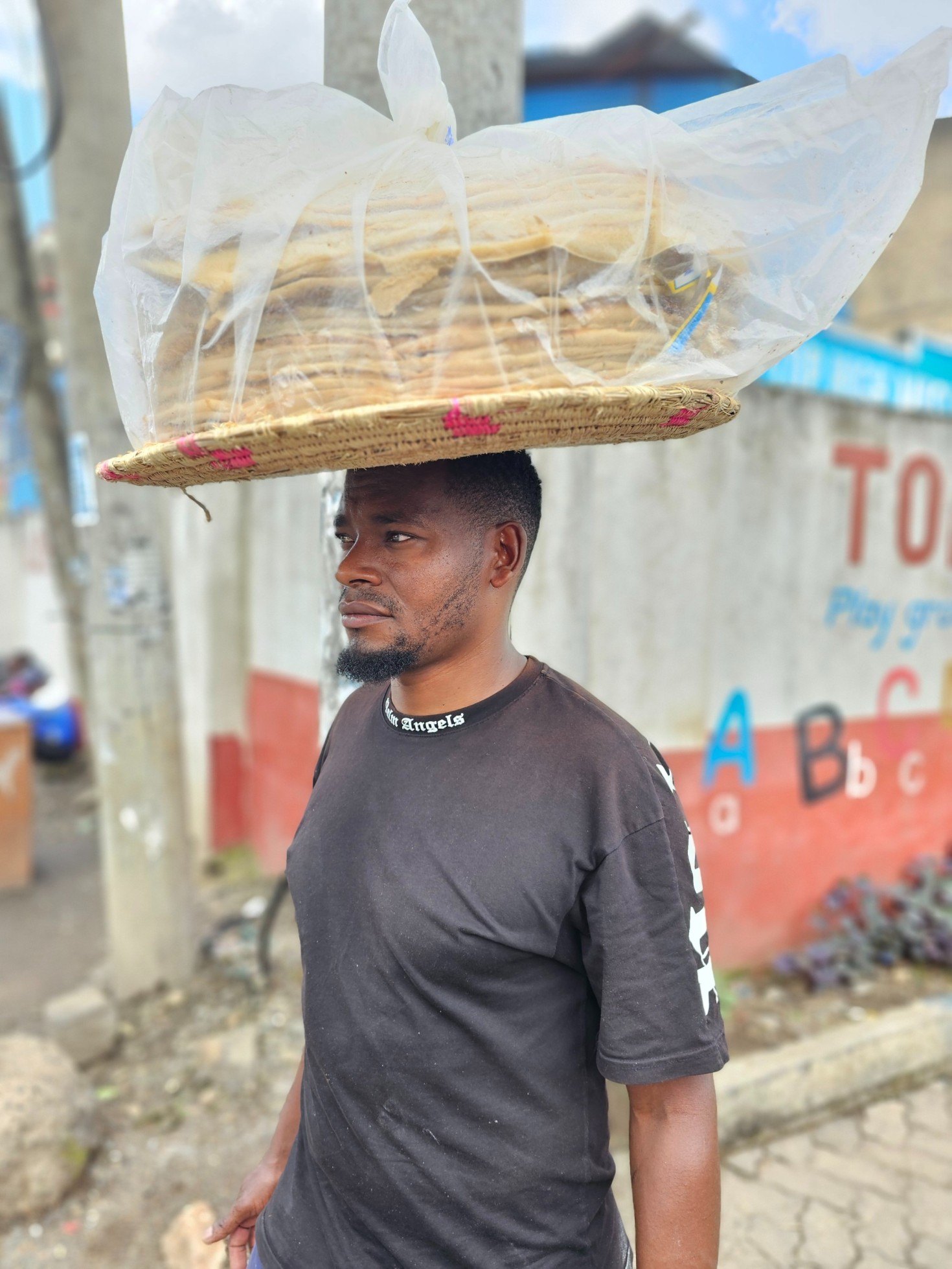 Alo Osmna delivering injera in Eastleigh, Nairobi. (Photo: Abdirahmna Khalif)
Alo Osmna delivering injera in Eastleigh, Nairobi. (Photo: Abdirahmna Khalif)Alo Osmna delivering injera in Eastleigh, Nairobi. (Photo: Abdirahmna Khalif)
Injera, a flatbread, is common in Ethiopian diets. Injera is a thin and pancake-like bread made from teff flour, water, and a starting fluid that goes through multiple fermentations before it is ready to be made.
Ali's goals extend beyond his current operations at the Airbase ward. He aims to expand his supply to the entire Eastleigh area and outperform any competitors.
"It's my dream and target. In the next few months, I hope to be the one supplying all restaurants in Eastleigh," he says.
One of Ali's longtime customers is Farhia Haji, who owns a restaurant on Eastleigh’s Second Street. She has been buying injera from Ali for over three years, praising the quality and consistency of his product.
"His injera has always been good quality, and my customers love them," she says. Farhia also finds that buying injera from Ali is less expensive and takes less time than preparing her own.
Restaurants typically buy injera from Ali at Sh50 per piece and sell it to customers for Sh150 often accompanied by injera soup. This arrangement benefits Ali and the restaurant owners, ensuring a steady supply of fresh injera to meet customer demand.
Mohamed Guracha, who owns a business on Eastleigh's Third Street, has also been a longtime customer of Ali. He resells dried injera to local households.
"Mothers from these buildings come to buy from me just like they would buy bread," he says.
Mohamed buys around 20 pieces of injera from Ali every day. Most of the time, his customers buy all the injeras by 5pm.
After purchasing an injera for Sh50, he resells each piece for Sh80, earning Sh30 per piece.
Ali’s dedication and hard work have made him a crucial part of the culinary landscape at Airbase. His efforts ensure that the Oromo community and others in the area access their beloved traditional bread.
However, his success is not without setbacks, such as his car breaking down, making it difficult to supply customers with injera. He incurs additional fees to supply them. Some days, sales are slow because customers buy significantly less than usual, forcing Ali to carry the unsold injera home.
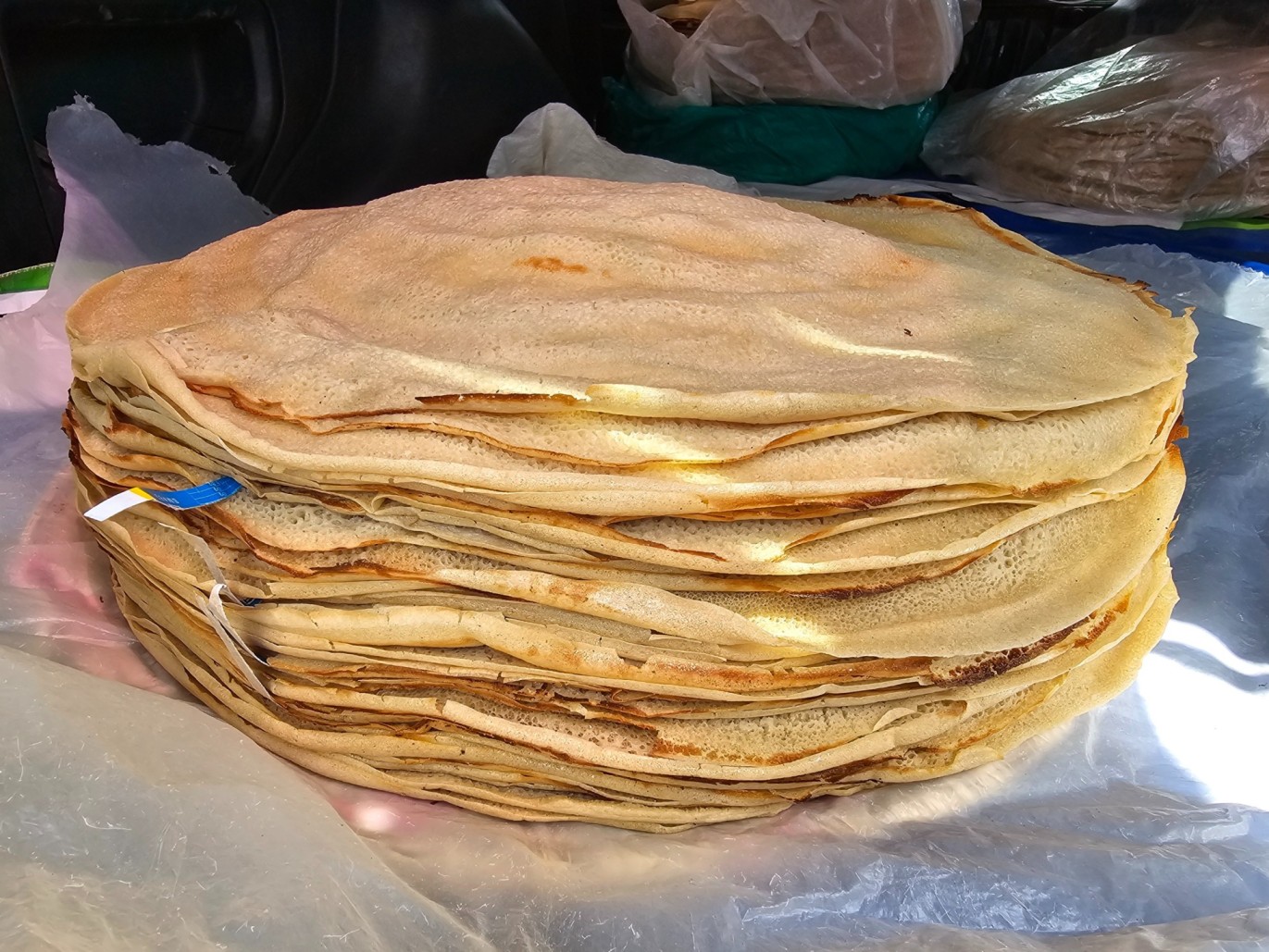 Packed injera cooked by Ali Osman. (Photo: Abdirahman Khalif)
Packed injera cooked by Ali Osman. (Photo: Abdirahman Khalif)Packed injera cooked by Ali Osman. (Photo: Abdirahman Khalif)
"I give them out to street families when that happens because they will go bad if I keep them at home," he says.
Another problem Ali encounters is that some clients refuse to pay after being offered the injera on credit.
The Somali community, though smaller in number in the Airbase ward, is an avid consumer of Oromo cultural foods like injera.
Unlike Somali injera, which is typically small and made of wheat flour, Ethiopian injera is larger. One Ethiopian injera can feed two people and is usually served with meat soup.
Abdiaziz Ibrahim, a resident of Eastleigh's Second Street, says he eats Oromo injera with his friends from many origins, including Kikuyu.
He notes that at the Airbase ward tribe and clan do not matter and everyone embraces diversity.
"It's my favourite food. Our ward is growing because of how we have embraced each other," he says.
Airbase Ward is notable for its multiculturalism, with diverse communities coexisting and thriving.
Different ethnic groups, including the Kikuyu, Oromo, and Kamba, live harmoniously, often sharing the same apartment buildings. Oromo-owned restaurants serve non-Oromos, Kikuyu-owned shops cater to Oromos, and Kamba-owned kiosks welcome customers from all backgrounds.
Top Stories Today
Reader Comments
Trending

